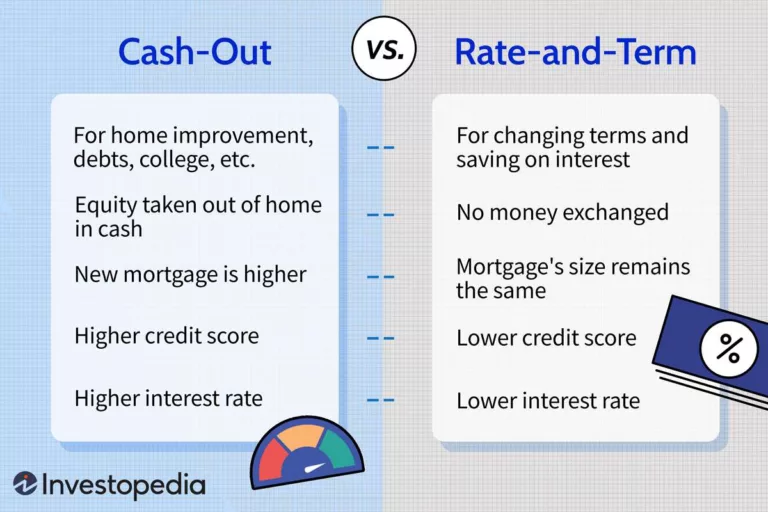What is a Subject to Mortgage : Unlock the Secrets for Success
Subject to Mortgage refers to a real estate transaction where the buyer takes over the existing mortgage of the seller. Are you planning to buy a property and wondering what “Subject to Mortgage” means?
In a subject to mortgage transaction, the buyer assumes the seller’s existing mortgage instead of applying for a new loan. This means that the buyer takes over the mortgage payments and assumes responsibility for the property’s debt. This type of arrangement can be beneficial for buyers who may not qualify for a new loan or want to avoid certain fees and requirements associated with obtaining a new mortgage.
However, it is essential to thoroughly evaluate the terms and conditions of the existing mortgage before proceeding with a subject to mortgage transaction to ensure it is a financially prudent decision.
Understanding Subject To Mortgages
Subject to mortgages can be a useful option for homeowners who want to sell their property while transferring the existing mortgage to the buyer. It allows the buyer to take over the mortgage payments and assume the remaining balance, making it a convenient alternative for both parties involved.
Definition Of Subject To Mortgages
A subject to mortgage, also known as a subject-to agreement, is a real estate strategy that allows a buyer to take ownership of a property while leaving the existing mortgage in place. In this arrangement, the seller’s mortgage remains active, and the buyer takes over the responsibility of making the mortgage payments. The buyer does not assume the loan formally, but rather, agrees to make the payments on behalf of the seller until the loan is paid off or refinanced. This can be an attractive option for both buyers and sellers in certain situations.How Subject To Mortgages Work
Subject to mortgages work by transferring the ownership of a property from the seller to the buyer without paying off the existing mortgage. Instead, the buyer becomes responsible for making the mortgage payments directly to the lender. However, it’s essential to understand that the existing mortgage is not being transferred to the buyer’s name. Instead, the buyer is taking on the responsibility of making the payments on behalf of the seller. This means that if the buyer fails to make the payments, the seller could still be held liable for the mortgage. This type of arrangement can benefit both parties involved. For the seller, a subject-to agreement allows them to sell their property quickly without having to go through the hassle of paying off the mortgage or going through the formal process of a typical home sale. It can be particularly useful for sellers who may be facing financial difficulties, foreclosure, or need to relocate urgently. On the other hand, subject to mortgages can be an attractive option for buyers who may not qualify for traditional financing or who want to take advantage of the existing favorable loan terms. By investing in a property subject to a mortgage, the buyer can potentially secure a lower interest rate or avoid additional costs associated with securing a new mortgage. Additionally, subject-to agreements often require little or no down payment, making it an appealing choice for buyers with limited funds. It is important to note that subject-to agreements come with certain risks. Both buyers and sellers should consider consulting with real estate professionals or attorneys to ensure they fully understand the implications and potential legal ramifications of such arrangements. Ultimately, subject to mortgages can be a viable option in certain situations but require careful consideration and due diligence to ensure a successful transaction.
Credit: www.facebook.com
Benefits Of Subject To Mortgages
Subject to mortgages offer various advantages for both buyers and sellers. Whether you’re a homeowner looking to sell your property or a buyer seeking flexible financing options, subject to mortgages provide a unique solution. Here are some key benefits:
Preserving Credit Score
Subject to mortgages allow homeowners to transfer their existing loan to the buyer without triggering a formal loan assumption or affecting their credit score. This means that the seller can hand over the property’s mortgage to the buyer, who takes over the payments and keeps the loan in the seller’s name. By preserving the seller’s credit score, subject to mortgages present an attractive option for both parties involved.
No Need For Down Payment
With subject to mortgages, buyers can avoid the traditional requirement of a down payment. Typically, when purchasing a property, a down payment is necessary to secure a mortgage. However, subject to mortgages offer a way around this by allowing the buyer to assume the existing mortgage and take over the payments. This can be especially beneficial for buyers who may not have a substantial amount of savings to put towards a down payment.
Flexibility In Financing Options
Subject to mortgages provide flexibility in financing options for both buyers and sellers. For sellers, subject to mortgages offer an alternative to the conventional selling process, allowing them to transfer the mortgage and the associated payments to the buyer. This opens up opportunities for sellers to sell their properties quickly and efficiently. On the other hand, buyers benefit from the ability to assume the existing mortgage instead of obtaining a new loan. This can be particularly advantageous if the buyer has a lower credit score or is self-employed, making it difficult to qualify for a traditional mortgage.
Overall, subject to mortgages provide a win-win situation for both buyers and sellers. Sellers can sell their properties without the need for a down payment and while preserving their credit score. Buyers, meanwhile, can avoid/down payment and enjoy the flexibility of assuming an existing mortgage. The subject to mortgage option is worth considering for anyone in the market to buy or sell a property. Remember to consult with a qualified professional for guidance specific to your situation.
Risks And Challenges Of Subject To Mortgages
Subject to mortgages can offer certain benefits, allowing homebuyers to acquire a property without obtaining a new mortgage. However, there are several risks and challenges associated with subject to mortgages that both buyers and sellers need to be aware of. These challenges include:
Lender’s Due-on-sale Clause
The lender’s due-on-sale clause is an important consideration when entering into a subject to mortgage agreement. This clause gives the lender the option to demand payment of the full mortgage balance if the property changes ownership. Essentially, the lender has the right to exercise this clause and call the mortgage due immediately.
In case of a due-on-sale clause, the borrower may be required to pay off the remaining mortgage balance or risk foreclosure.
Remaining Liable For The Existing Mortgage
When a subject to mortgage is in place, the original mortgage remains in the seller’s name, making them responsible for making timely payments. As the buyer, you are not the legally named borrower on the mortgage, but you still need to ensure that the payments are made to protect your financial interests.
It’s crucial for the buyer to establish a clear communication and payment system with the seller to avoid any missed payments that could potentially jeopardize the property.
Complications In Transferring Ownership
Transferring ownership of a property with a subject to mortgage can be more complicated than a traditional transfer. Sellers may face difficulties in obtaining a clean title, and buyers may encounter challenges in securing financing if they decide to sell the property in the future.
Both buyers and sellers should consult with legal professionals to ensure compliance with all legal requirements and to address any potential complications that may arise.
In summary, while subject to mortgages can provide an alternative option for homebuyers and sellers, it’s important to be fully aware of the risks and challenges involved. The lender’s due-on-sale clause, remaining liability for the existing mortgage, and complications in transferring ownership are all aspects that need to be carefully considered and navigated.

Credit: www.facebook.com
How To Navigate Subject To Mortgages Successfully
Understanding the concept of Subject to Mortgages is crucial for navigating real estate transactions successfully. A Subject to Mortgage allows a buyer to take over the mortgage payments on a property without assuming full responsibility for the loan. In this blog post, we will focus on how to navigate Subject to Mortgages successfully.
Performing Due Diligence
Performing due diligence is key when dealing with Subject to Mortgages. Before entering into such an agreement, gather as much information as possible about the property and the existing mortgage. This includes:
- Reviewing the terms and conditions of the mortgage.
- Verifying the current mortgage balance, interest rate, and monthly payment amounts.
- Checking if there are any late payments, liens, or legal issues associated with the property.
- Researching the current market value of the property and assessing its potential for appreciation.
By conducting a thorough analysis, you can ensure that the Subject to Mortgage arrangement aligns with your investment goals and mitigates potential risks.
Working With Experienced Professionals
Collaborating with experienced professionals, such as real estate agents, mortgage brokers, and attorneys, is essential for a successful Subject to Mortgage transaction. These professionals can offer valuable insights, guidance, and support throughout the process.
Real estate agents can help you identify suitable properties that are open to Subject to Mortgages. They have in-depth knowledge of the local market and can negotiate favorable terms on your behalf.
Mortgage brokers can assist in finding appropriate financing options and understanding the specific requirements set by lenders for Subject to Mortgages. They can also ensure that the loan assumptions are executed correctly.
Attorneys specializing in real estate law can review and draft comprehensive agreements that protect your interests. They can advise on legal implications, potential risks, and assist in navigating any complex legal documentation involved in Subject to Mortgages.
Creating A Comprehensive Agreement
When engaging in Subject to Mortgages, a comprehensive agreement is crucial to outline the responsibilities and obligations of all parties involved. The agreement should touch upon:
- Clearly defining the buyer’s responsibilities regarding the mortgage payments, property maintenance, and insurance.
- Addressing any repercussions in the event of default or a breach of the agreement.
- Stipulating the rights of the original homeowner, including any profit-sharing arrangements.
- Outlining the timeline for the eventual transfer of the property title.
By having a well-drafted agreement, you can minimize potential conflicts and ensure a smooth execution of the Subject to Mortgage transaction.
Navigating Subject to Mortgages successfully requires performing due diligence, working with experienced professionals, and creating a comprehensive agreement. By following these steps and seeking expert advice, you can make informed decisions and mitigate risks associated with Subject to Mortgages.

Credit: www.amazon.com
Frequently Asked Questions Of What Is A Subject To Mortgage
What Does Subject To Mean Mortgage?
Subject to in a mortgage means that the sale is contingent upon certain conditions being met, such as obtaining financing or clearing title issues. The buyer and seller agree that the transaction will only proceed if these conditions are satisfied.
What Is The Difference Between Assuming A Mortgage And Subject To A Mortgage?
Assuming a mortgage means officially taking over the responsibility for the existing loan. On the other hand, subject to a mortgage means acquiring the property without assuming liability for the loan, making payments on the mortgage on someone else’s behalf.
What Are The Benefits Of A Subject To Mortgage?
Subject to mortgage (also known as “subject-to” or “take over payments”) allows a buyer to take over an existing mortgage without obtaining new financing. Benefits include no need for a down payment, lower closing costs, and existing favorable interest rates.
It can be a quick and cost-effective way to acquire a property.
What Does It Mean To Take Title Subject To A Mortgage?
Taking title subject to a mortgage means assuming responsibility for someone else’s mortgage when you buy their property. You become responsible for making the remaining mortgage payments, but the loan stays in the original owner’s name.
Conclusion
To sum up, understanding what a subject to mortgage means is crucial for both buyers and sellers in the real estate market. By taking on the existing mortgage of the seller, the buyer assumes ownership of the property with minimal upfront costs.
However, it is essential to conduct thorough due diligence and seek professional advice to ensure a successful and legally sound transaction. With this knowledge, buyers and sellers can navigate the subject to mortgage option confidently and make informed decisions that align with their financial goals.




